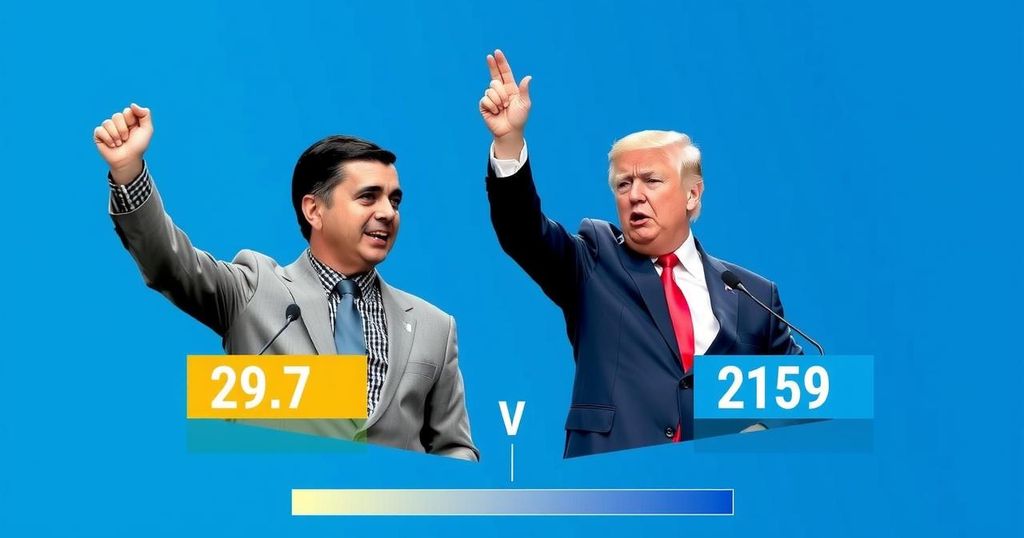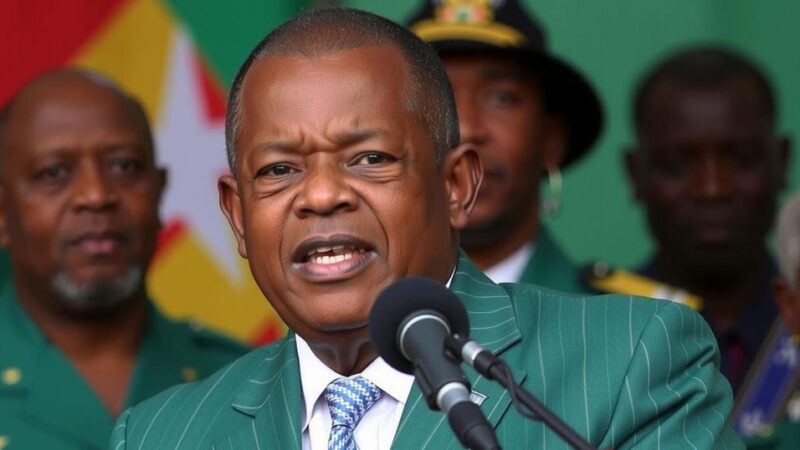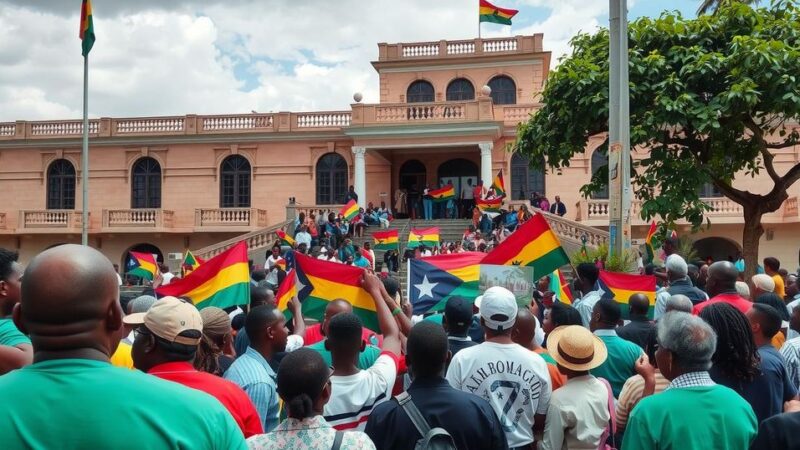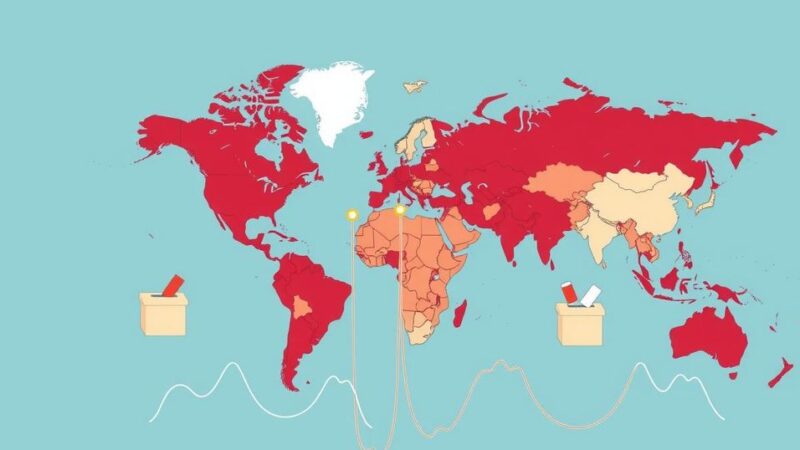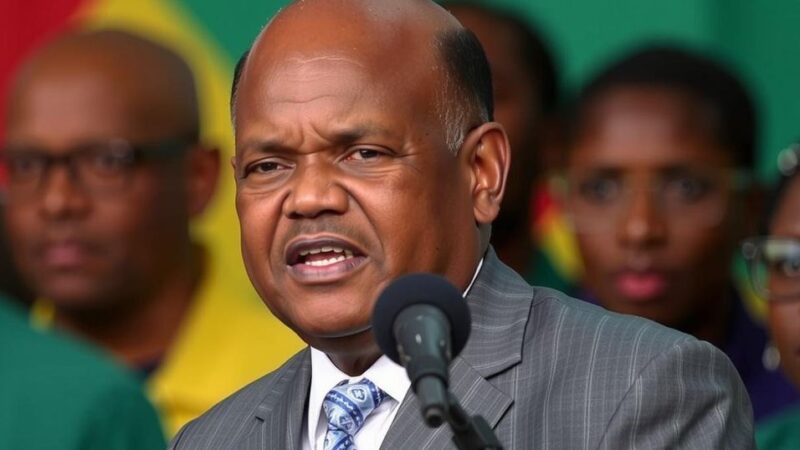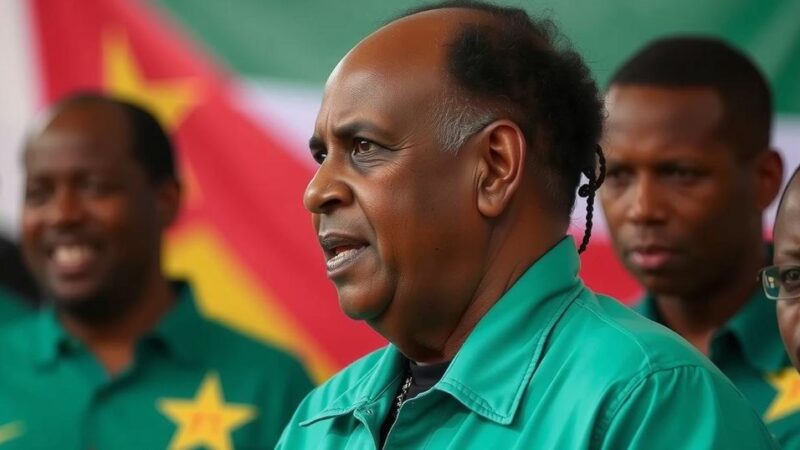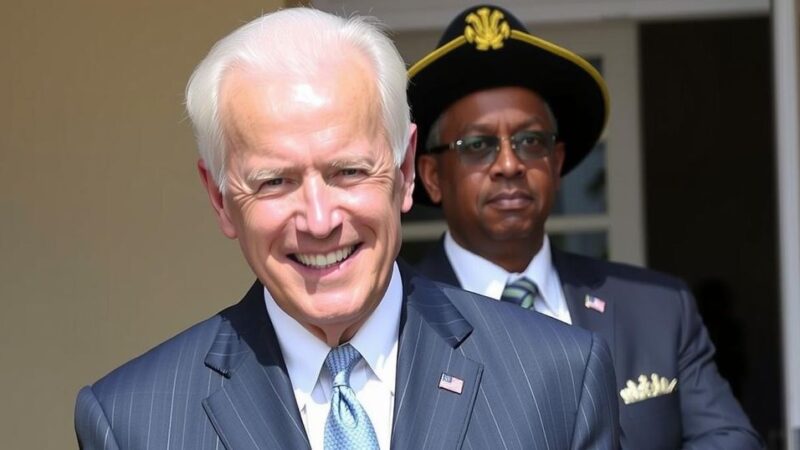Uruguay prepares for a crucial presidential runoff election where Álvaro Delgado of the National Party faces Yamandú Orsi of the Broad Front amid close initial voting results. The election is marked by a lack of voter enthusiasm and concerns over crime, presenting unique challenges and opportunities for both candidates. The outcome will significantly influence the country’s future political direction.
Uruguay is facing a pivotal moment as voters return to the polls for a presidential runoff election. The race has transformed into a competitive battle between Álvaro Delgado, the candidate from the conservative ruling party, and Yamandú Orsi, representing the leftist coalition known as the Broad Front. Both candidates have been campaigning vigorously in response to a close result from the previous vote, where Delgado’s National Party garnered only 27% against Orsi’s 44%. Nevertheless, the support from other conservative parties provides Delgado a competitive advantage going into the runoff, which is characterized by low voter enthusiasm and significant indecisiveness.
Delgado, 55, seeks to continue the policies of current President Luis Lacalle Pou, who, despite encountering corruption scandals, remains popular among voters due to favorable economic indicators. His campaign promotes continuity under the slogan “re-elect a good government”. On the other hand, Orsi, 57, aims to revive the leftist legacy of former President José Mujica by suggesting innovative economic reforms and advocating for a new approach to social policies. However, both candidates share a focus on addressing increased concerns about crime that have emerged in a historically peaceful nation.
Amidst their campaigns, analysts note that a lack of major ideological divisions has contributed to an unusual level of voter apathy, which contrasts with the more polarized political landscapes observed in other countries. The outcome of this election is significant not only for Uruguay’s immediate leadership but also for its future political landscape, reflecting the nation’s democratic resilience.
The upcoming presidential runoff in Uruguay represents a crucial moment in the nation’s political process, following a first round in which no candidate garnered an outright majority. The election highlights the competition between the longstanding leftist Broad Front coalition and the centrist National Party, which governs under conservative ideals. This electoral contest follows a period of significant social reform under the Broad Front concerning issues such as abortion, same-sex marriage, and drug legalization. Moreover, the context of public concern over rising crime rates and economic stability has intensified the focus on these candidates’ policy proposals.
In conclusion, the presidential runoff in Uruguay features a tightly contested race between Álvaro Delgado and Yamandú Orsi, with both candidates presenting distinct visions for the nation. Voter apathy and indecision prevail due to a perceived lack of significant policy differences and the compulsions of current domestic challenges such as crime. Ultimately, the results will not only determine the next president but will also reflect the evolving political dynamics in Uruguay, a nation known for its democratic integrity.
Original Source: abcnews.go.com

